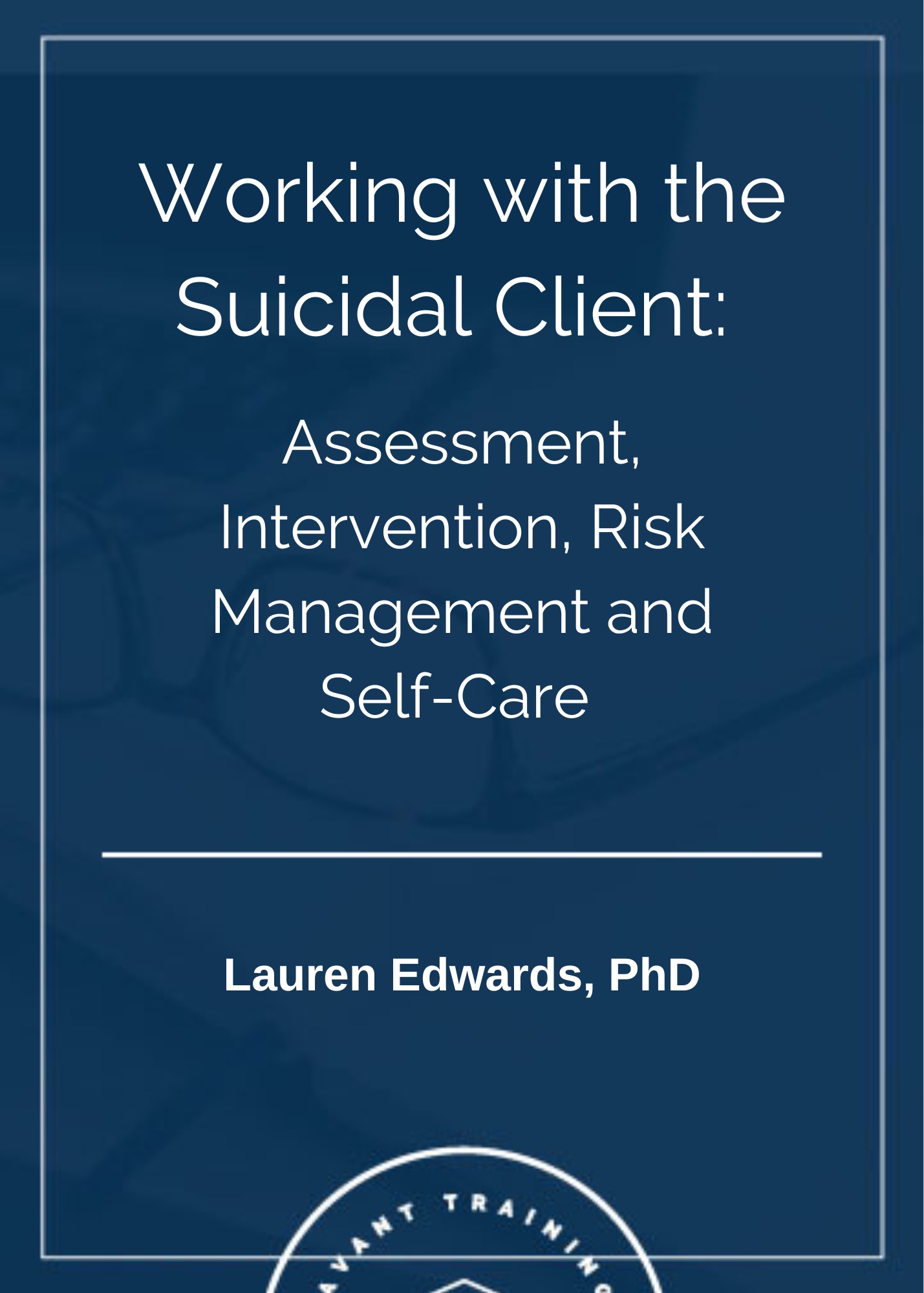Avant Take: This workshop is well worth it if you work with suicidal clients, if you only have ONE suicidal client, or if you just worry about having a suicidal client. Knowing how to accurately assess risk AND what to do next will immediately decrease your stress and anxiety and increase your confidence and competence.


Lauren Edwards, PhD
A licensed psychologist working with teens, adults, and groups, Dr. Lauren Edwards is the owner of Edwards Psychological Associate and co-founder of Daily DBT. After receiving her undergraduate degree from Wake Forest University, she went on to achieve a PhD in Psychology from the University of Tennessee. Following an internship at Emory University Counseling Center, Dr. Edwards was awarded a postdoctoral fellowship through Emory University School of Medicine. Currently, she serves on the Board of Advisors for the Atlanta chapter of the American Foundation for Suicide Prevention, is a consultant for the Samaritan Counseling Center of Atlanta, and is an adjunct professor at Emory University School of Medicine. Dr. Edwards’ specialties include working with emotional dysregulation, personality disorders, attachment and interpersonal process, relationship issues (family of origin, romantic relationships), college and graduate students, suicide prevention, depression/anxiety, and Dialectical Behavior Therapy.
Working with the Suicidal Client: Assessment, Intervention, Risk Management & Self-Care
$235.00
This workshop will teach participants to assess a client’s level of risk for suicide by taking into account number of factors including underlying vulnerabilities (distal factors) and immediate dangers (proximal factors). We will focus on empirically-based interventions tailored to the specific level of risk. This will include, but is not limited to, strategies for emotional de-escalation, means restriction, and safety planning as well as broader interventions for clients at lower risk levels. Participants will then learn specific ways to manage risk when working with suicidal clients. We will discuss additional ways to manage anxiety in the moment and improve self-care overall. Several full case examples will be used to illustrate the material.
Learning Objectives
- Assess level of suicide risk taking into account a variety of distal and proximal factors and identify which of these factors is most closely linked to completed suicide
- Utilize at least three empirically-based clinical interventions for suicide that take into account specific level of risk
- List standard risk management techniques, including documentation, to employ when working with suicidal clients
- Discuss ways to improve therapist self-care and manage stress when working with clients considering suicide
Continuing Education Credit
- Psychologists – 5 CE credits
- LCSW, LPC, LMFT: 5 Related hours
Avant Training is approved by the American Psychological Association to sponsor continuing education for psychologists. Avant Training maintains responsibility for this program and its content.
Out of stock
